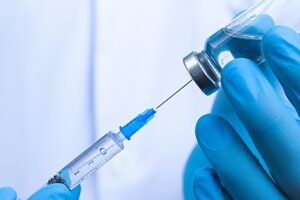The Ministry of Health, Labour and Welfare (MHLW) of Japan has granted emergency use authorization for Covid-19 vaccines developed by AstraZeneca and Moderna.

Moderna and AstraZeneca’s Covid-19 vaccines receive emergency use authorization in Japan. Credit: Pete Linforth from Pixabay.
Subscribe to our email newsletter
The Ministry of Health, Labour and Welfare (MHLW) of Japan has granted emergency use authorization for Covid-19 vaccines developed by AstraZeneca and Moderna.
AstraZeneca’s Vaxzevria (ChAdOx1-S [Recombinant]), co-invented by the University of Oxford and Vaccitech, has received approval for active immunisation of people aged 18 years and above.
The authorisation is based on positive data received from the Phase III Oxford University-led clinical trial programme in the UK, Brazil and South Africa, and a Phase I/II trial in Japan.
Additionally, the vaccine will be administered intramuscularly as two 0.5ml doses given four to 12 weeks apart and was advised to have an interval longer than eight weeks to maximise its efficacy.
Japan’s Pharmaceuticals and Medical Devices Agency has also recommended that the vaccine usage should be limited to adults.
The AstraZeneca vaccine production is already underway in Japan, with the first doses expected to be available in the coming weeks.
AstraZeneca stated that Vaxzevria also received a conditional marketing authorization or emergency use approval in over 80 countries across six continents.
World Health Organization has also granted emergency use listing for this Covid-19 vaccine.
For at least six months, the vaccine can be stored, transported and handled at normal refrigerated conditions.
The authorisation of Moderna’s mRNA COVID-19 vaccine, TAK-919, now known as Covid-19 Vaccine Moderna Intramuscular Injection, is based on the data from Takeda’s Phase I/II clinical trial conducted in Japan to evaluate the safety and immunogenicity of two vaccinations of TAK-919 which was administered 28 days apart.
This showed an immune response consistent with results from Moderna’s Phase III COVE trial conducted in the US.
As announced earlier, Takeda will import and distribute 50 million doses of Moderna’s Covid-19 vaccine candidate, starting in the first half of this year.
 Advertise With UsAdvertise on our extensive network of industry websites and newsletters.
Advertise With UsAdvertise on our extensive network of industry websites and newsletters.
 Get the PBR newsletterSign up to our free email to get all the latest PBR
news.
Get the PBR newsletterSign up to our free email to get all the latest PBR
news.

